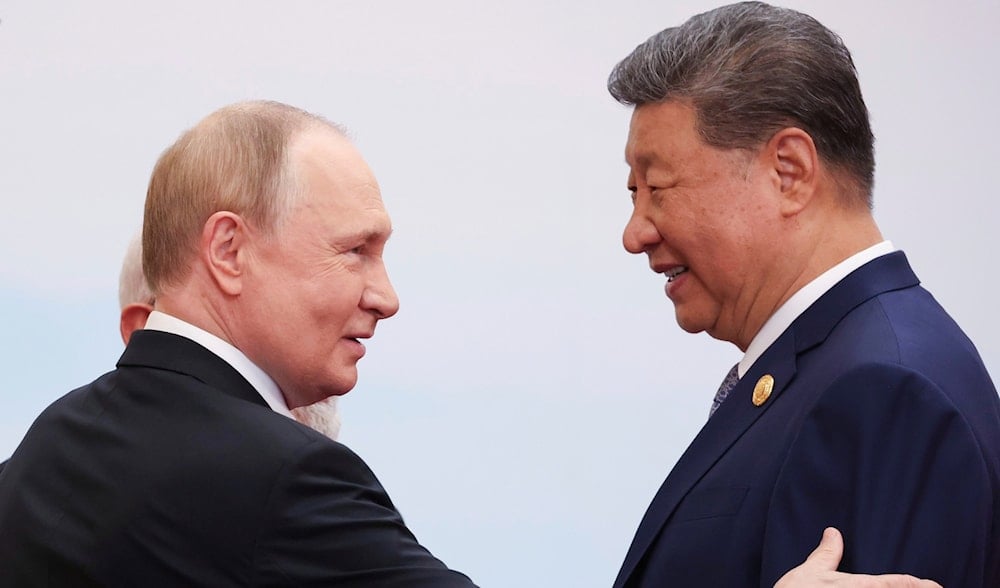China, Russia back Iran against European push for snapback sanctions
China and Russia reject the European attempt to trigger snapback sanctions on Iran at the UN Security Council, calling the move legally flawed and politically motivated.
-

Russian President Vladimir Putin, left, talks with Chinese President Xi Jinping during a family photo session at the Shanghai Cooperation Organization (SCO) summit in Tianjin, China, Monday, Sept. 1, 2025. (AP)
China and Russia have aligned with Iran in rejecting the European push to reinstate United Nations sanctions on Tehran, which had been eased a decade ago under the 2015 nuclear agreement.
The move comes as Britain, France, and Germany, known as the E3, pursue the "snapback mechanism" designed to automatically reimpose sanctions. Beijing and Moscow joined Tehran in dismissing the initiative as illegitimate.
In a joint letter signed by the foreign ministers of China, Russia, and Iran, the three nations stressed that the European attempt was “legally and procedurally flawed.” The letter further emphasized that the push undermines the UN Security Council’s credibility.
Our joint letter with my colleagues, the Foreign Ministers of China and Russia, signed in Tianjin reflects the firm position that the European attempt to invoke “snapback” is legally baseless and politically destructive. By declaring the E3’s move null and void, we have placed on… pic.twitter.com/YC4LKNkxMX
— Seyed Abbas Araghchi (@araghchi) September 1, 2025
Background on 2015 JCPOA
China and Russia, alongside the E3, were original signatories of the Joint Comprehensive Plan of Action (JCPOA), reached in 2015 to limit Iran’s nuclear program in exchange for sanctions relief.
The United States unilaterally withdrew from the agreement in 2018 during President Donald Trump's first term, a decision that weakened the deal and fueled ongoing and unfounded disputes over Iran’s nuclear program.
Iran condemns European actions
Iran’s Foreign Minister Abbas Araghchi published the letter signed in Tianjin on X, saying it reflects a firm rejection of the European attempt to trigger the “snapback” of sanctions.
He described the E3 initiative as “legally baseless and politically destructive,” stressing that it cannot erase the sequence of events that led to the current crisis. Araghchi pointed to the United States as the first violator of the 2015 nuclear deal and UN Security Council Resolution 2231, and accused Europe of later aligning with Washington’s “unlawful sanctions” instead of meeting its own obligations.
The top diplomat emphasized that international law cannot allow states to ignore their commitments while seeking the benefits of agreements they have undermined. “The credibility of multilateral diplomacy depends on this logic,” he said, adding that selective compliance and procedural abuse threaten the foundation of collective security.
Araghchi further warned that the E3’s push risks turning the UN Security Council into “an instrument of coercion rather than a guardian of global stability.” He called for restoring international law and rebuilding trust in diplomacy as the only path to maintaining peace and security.
Read more: Snapback mechanism risks EU's global diplomatic credibility: Analysis

 3 Min Read
3 Min Read








